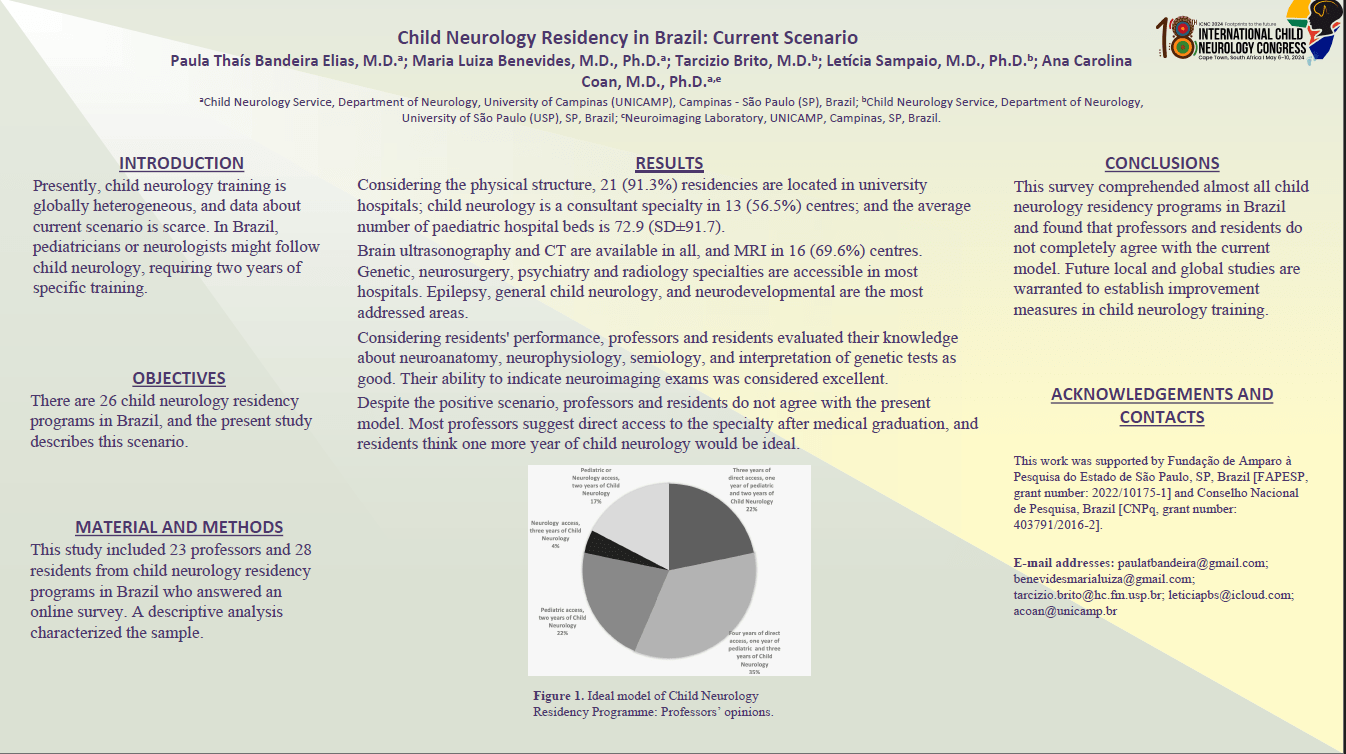Child Neurology Residency In Brazil: Current Scenario
Introduction/Aims: Presently, child neurology training is globally heterogeneous, and data about current scenario is scarce. In Brazil, pediatricians or neurologists might follow child neurology, requiring two years of specific training. There are 26 child neurology residency programs in Brazil and the present study describes this scenario. Methods: This study included 23 professors and 28 residents from child neurology residency programs in Brazil who answered an online survey. A descriptive analysis characterized the sample. Results: Considering the physical structure, 21 (91.3%) residencies are located in university hospitals; child neurology is a consultant specialty in 13 (56.5%) centres; and the average number of paediatric hospital beds is 72.9 (SD±91.7). Brain ultrasonography and CT are available in all, and MRI in 16 (69.6%) centres. Genetic, neurosurgery, psychiatry, and radiology specialties are accessible in most hospitals. Epilepsy, general child neurology, and neurodevelopmental are the most addressed areas. Considering residents' performance, professors and residents evaluated their knowledge about neuroanatomy, neurophysiology, semiology, and interpretation of genetic tests as good. Their ability to indicate neuroimaging exams was considered excellent. Despite the positive scenario, professors and residents do not agree with the present model. Most professors suggest direct access to the specialty after medical graduation, and residents think one more year of child neurology would be ideal. Conclusions: This survey comprehended almost all child neurology residency programs in Brazil, and found that professors and residents do not completely agree with the current model. Future local and global studies are warranted to establish improvement measures in child neurology training.
Paula Thaís Bandeira Elias
University of Campinas (UNICAMP)
Brazil
Maria Luiza Benevides
University of Campinas (UNICAMP)
Brazil
Tarcízio Brito
Clinical Hospital of the University of São Paulo
Brazil
Letícia Brito Sampaio
Clinical Hospital of the University of São Paulo
Brazil
Ana Carolina Coan
University of Campinas (UNICAMP)
Brazil
